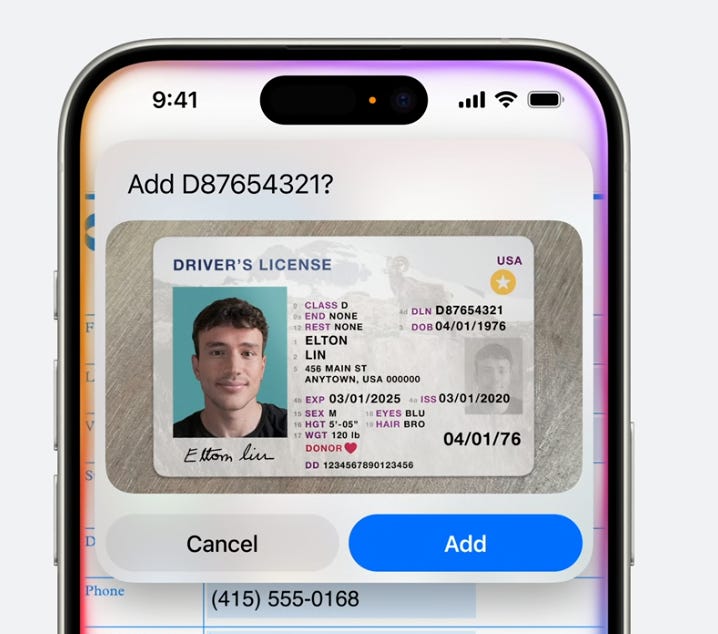The Intelligence of Apple: WWDC 2024 Marks a Turning Point
Apple's WWDC 2024 wasn't just about unveiling a new lineup of devices or incrementally updating operating systems. It marked a significant inflection point for the Cupertino giant, a decisive step away from its hardware-centric identity towards a future driven by what Apple calls "Personal Intelligence." The star of the show wasn't a physical product, but "Apple Intelligence" itself – a comprehensive, privacy-focused AI system poised to fundamentally reshape how we interact with our Apple devices and the digital world at large.
Understanding Apple's Vision: A Shift in Perspective
Apple's WWDC 2024 keynote wasn't about showcasing shiny new hardware or iterating on existing software features. It marked a profound philosophical shift for the tech giant, a decisive move away from being primarily a hardware company towards becoming a leader in the nascent field of "Personal Intelligence."
This transition is about more than just slapping "AI-powered" stickers on existing products. Apple envisions a future where technology seamlessly adapts to individual needs and preferences, proactively anticipating user desires while respecting their data privacy. This vision manifests in the form of "Apple Intelligence" - a unified, integrated AI system deeply intertwined with user data and context, standing in stark contrast to the cloud-centric AI approach favored by competitors.
Three key elements define Apple's vision:
From Isolated Features to Unified Intelligence: Apple Intelligence is not a standalone app or a set of disjointed features sprinkled across the OS. It's a foundational layer, woven into the fabric of iOS, iPadOS, and macOS, empowering every interaction with an undercurrent of proactive, personalized assistance.
The Power of "Personal" in Personal Intelligence: Apple emphasizes the deeply individual nature of its AI system. It's not about generic intelligence trained on massive datasets of anonymized user information. It's about understanding the nuances of your data, your routines, and your preferences to deliver truly tailored experiences.
Privacy as a Core Tenet: Perhaps the most significant differentiating factor is Apple's unwavering commitment to user privacy. While competitors rely heavily on harvesting user data to train their AI models in the cloud, potentially raising concerns about data security and misuse, Apple Intelligence prioritizes on-device processing and secure, transparent cloud infrastructure.
The Engine Room of Apple Intelligence
Apple's vision for a more personal, private AI depends on a tightly integrated system of cutting-edge hardware and software.
Silicon as the Foundation: At the heart of this revolution lie Apple's custom silicon chips – the A17 Pro for iPhones, and the M-series chips powering the iPad and Mac eligible devices. These processors enable Apple Intelligence to process language, analyze images, and make complex decisions without relying on the cloud.
Semantic Indexing: Your Data, Organized but Not Compromised: To deliver personalized experiences, Apple Intelligence needs access to vast amounts of personal data. But instead of uploading everything to the cloud, Apple employs on-device semantic indexing. This technology acts like a hyper-efficient librarian, meticulously categorizing and cross-referencing your data - emails, photos, calendar entries, even the content of your handwritten notes.
Private Cloud Compute: Scaling Power Without Sacrificing Privacy: While on-device processing forms the bedrock of Apple Intelligence, there are times when more horsepower is needed, particularly for computationally demanding tasks like generated a recipe. This is where Apple's innovative "Private Cloud Compute" comes in.
Instead of relying on generic cloud infrastructure, Apple has built dedicated servers powered by, you guessed it, Apple Silicon. Crucially, only the data strictly necessary for a specific task is transmitted, and it's never stored or accessible to Apple itself. It seems that the models that run on Apple’s servers are GPT-3.5 class models. So it makes sense that Apple also offers GPT-4o through a partnership with OpenAI. It will be interesting to see if Apple users will receive the same or different throttling that free users of ChatGPT see.
Apple Intelligence in Action: A Day in the Life
The power of Apple Intelligence lies in how seamlessly it integrates into everyday tasks. Imagine this: Your morning begins not with a cacophony of notifications, but a curated list of what matters. Apple Intelligence understands your schedule and priorities, surfacing urgent work emails, a reminder about your child's permission slip, and even a heads-up that your usual coffee order is ready for pickup.
Writing the Next Chapter in Apple's Story
WWDC 2024 will be remembered not for the features Apple announced, but for the future it boldly proclaimed. With Apple Intelligence, the company isn't just iterating on existing technology; it's attempting to rewrite the rules of the game.
In an era where every new feature seems tied to an ever-expanding subscription tier, Apple Intelligence arrives as a breath of fresh air. It's deeply integrated, deeply personal, and, remarkably, available to all users without requiring an iCloud+ subscription. This approach stands in stark contrast to the industry trend of monetizing AI advancements through premium tiers, reinforcing Apple's commitment to making this technology accessible, not just those willing to pay a premium… for now.
This isn't hyperbole. By placing "personal" before "intelligence," Apple is making a statement. It's a rejection of the one-size-fits-all AI paradigm, a commitment to user privacy that stands in stark contrast to the data-hungry practices and the not quite fully thought out or security harden features (Microsoft Recall) of many competitors, and a bet on a future where technology empowers individuals, not the other way around.
Will Apple succeed? The answer, as with all ambitious ventures, remains unwritten. Building truly personal, privacy-focused AI at scale is a monumental challenge. If even partially realized, Apple Intelligence has the potential to usher in a new era of computing.



